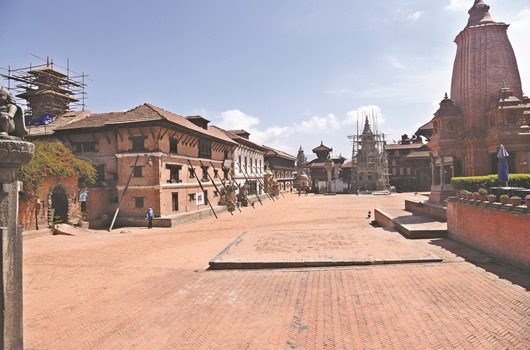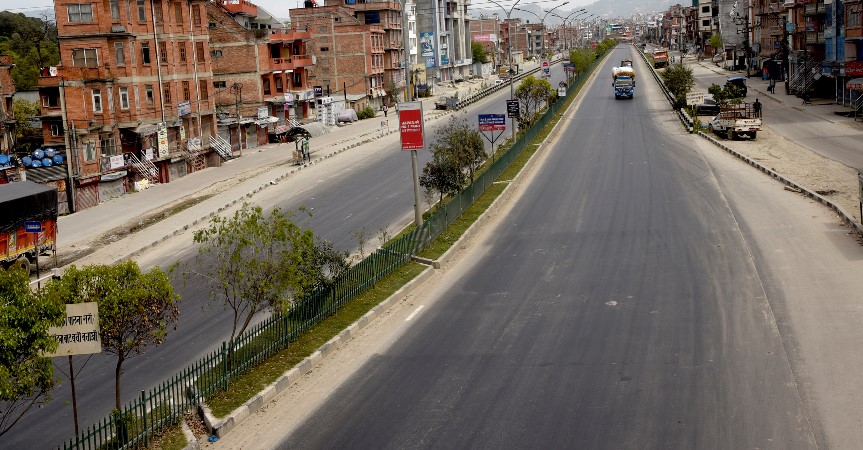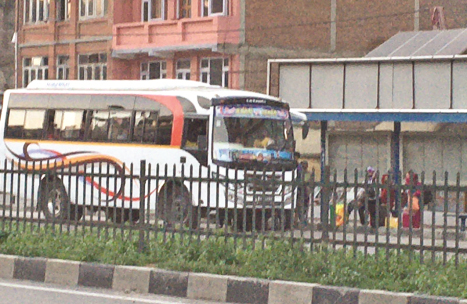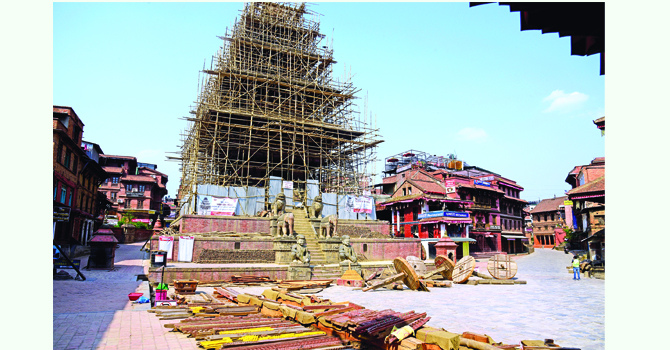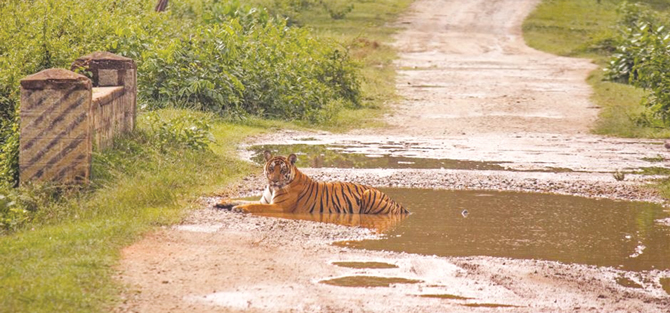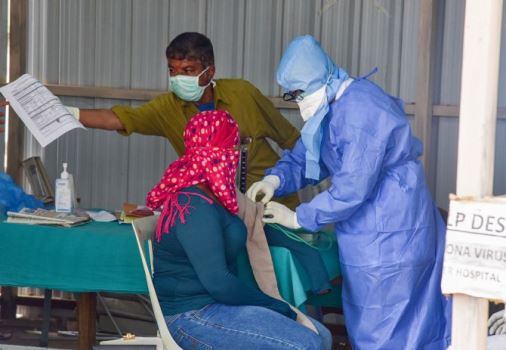Mountain development Nepal’s priority: PM
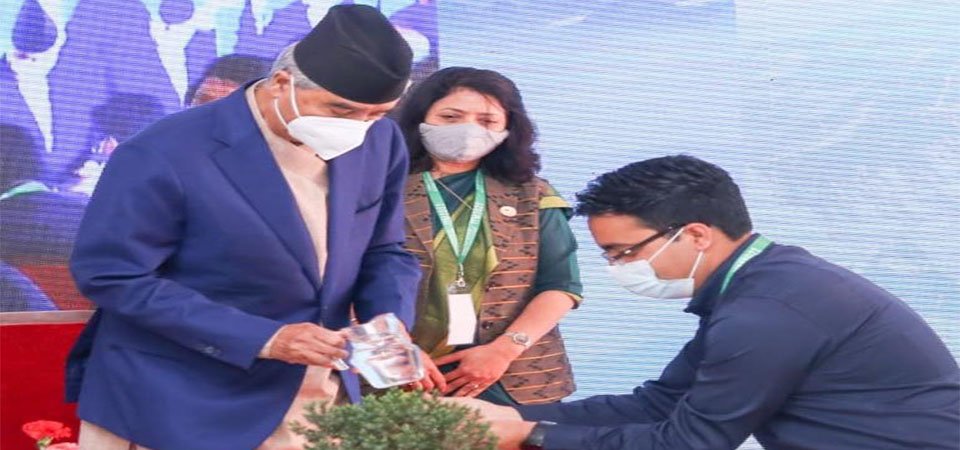
Kathmandu, Mar 24 : Prime Minister Sher Bahadur Deuba has said that the agenda of sustainable mountain development has always been a priority for Nepal.
Speaking at an inauguration programme of two-day ‘Regional Policy Dialogue on Sustainable Mountain Solutions’ organized by the Ministry of Forest and Environment on Wednesday, Prime Minister Deuba said the Government of Nepal has decided to undertake several programmes and activities to highlight the problems and prospects of mountains in Nepal.
The regional policy dialogue is the first and a part of various programmes to observe the International Year of Sustainable Mountain Development, 2022.
The United Nations has decided to celebrate the year 2022 as the International Year of Sustainable Mountain Development.
Prime Minister Deuba said, “As the mountains in the world continue to grapple with the challenges, such as natural disasters and climate change, I am confident that the activities throughout this year will contribute to raising awareness of the importance of conservation and sustainable use of mountain resources.”
“Mountains nourish lives and provide livelihoods. They are sources of an ecosystem that support millions of people living in and around mountain landscapes. Moreover, mountains are the water towers providing fresh water to more than half of humanity. They are home to unique species of flora and fauna,” Prime Minister Deuba said.
He said that they are not only vital for the people living around them but also crucial for those living downstream.
However, the mountain and the people living there continue to confront several difficulties. Poverty, food insecurity, environmental degradation, risk of disasters and limited access to basic services are the challenges that the mountainous regions increasingly confront, he said.
And in the quagmire of climate change, mountains lie at the hotspot. They are not only the barometers of global warming but also victims of disproportionate impact despite the negligible emissions of mountainous countries like Nepal. The world has not done enough to address environmental degradation, he said.
“As a consequence, climate change has assumed crisis proportion beyond our control. We need to take urgent measures to halt global temperature rise to secure the future of humanity. Nepal has adopted an ambitious roadmap to achieve net-zero carbon emissions by 2045.
We call upon the international community for meaningful support in our efforts,” Prime Minister Deuba said.
Many scientific studies of extreme weather patterns reveal that mountain regions are getting warmer much faster than the global average, he revealed. Melting of snow, the retreat of glaciers, drought, erratic rainfall, flood, already hint of a cautionary tale.
“We raised our voice in Glasgow during the COP 26. But there is a long way to go for mainstreaming the mountain agenda in climate negotiations. We need stronger collaboration among mountainous countries in UN climate change negotiations to sensitise our agenda. Nepal will continue to play an active role in global forums to address the concerns of the mountainous countries,” he informed.
Moreover, as the world is now in a decade of action to deliver on sustainable development goals, it is important that mountainous regions are not left behind, he said. “Our unique development
challenges must be addressed by ensuring adequate financing – both internal as well as external, that is cheap and affordable. We must not suffer from inadequacy of commitment, action and delivery on development outcomes. The commitment-delivery gap will erode the credibility of international cooperation. We all must act in true partnership to realize the SDGs by all,” Prime Minister Deuba said.
Nature-based solutions are important to address development and ecological needs, he said.
“COVID-19 pandemic has spared no one. But the economies of mountainous countries have been hit harder, as the tourism industry has been gravely disrupted. In the quest for recovery, mountainous countries require further cooperation and support from the international community,” Prime Minister Deuba said.
It is equally important to preserve indigenous cultures, generate employment opportunities and ensure the development of sustainable infrastructures. The Government of Nepal is committed to this pursuit to achieve sustainable mountain development, he informed.
Prime Minister Deuba expressed his confidence that the event will help synthesize the agenda for mountainous countries and ultimately contribute to achieving sustainable mountain development.
Minister for Forests and Environment Ramsahay Prasad Yadav said the programme is expected to focus on identifying problems in Himalayan and lower coastal areas. It is also for finding solutions to the problem of climate change in the mountainous region, he said.
The policy debate is being organized in collaboration with the United Nations Food and Agriculture Organization, ICIMOD, UNDP, IUCN, WWF Nepal, DanChurchAid (DCA) and Karnali Intergraded Rural Development and Research Centre (KIRDAEC) with the participation of national and international thematic experts in Kathmandu.
Altogether, three working papers – on Mountain Economy, Mountain Biodiversity, Ecosystem and Mountain Culture -- were presented on Wednesday’s session. Two other papers on Mountain Women and Mountain-Lowland Connections will be presented on Thursday.
Recent News

Do not make expressions casting dout on election: EC
14 Apr, 2022
CM Bhatta says may New Year 2079 BS inspire positive thinking
14 Apr, 2022
Three new cases, 44 recoveries in 24 hours
14 Apr, 2022
689 climbers of 84 teams so far acquire permits for climbing various peaks this spring season
14 Apr, 2022
How the rising cost of living crisis is impacting Nepal
14 Apr, 2022
US military confirms an interstellar meteor collided with Earth
14 Apr, 2022
Valneva Covid vaccine approved for use in UK
14 Apr, 2022
Chair Prachanda highlights need of unity among Maoist, Communist forces
14 Apr, 2022
Ranbir Kapoor and Alia Bhatt: Bollywood toasts star couple on wedding
14 Apr, 2022
President Bhandari confers decorations (Photo Feature)
14 Apr, 2022




